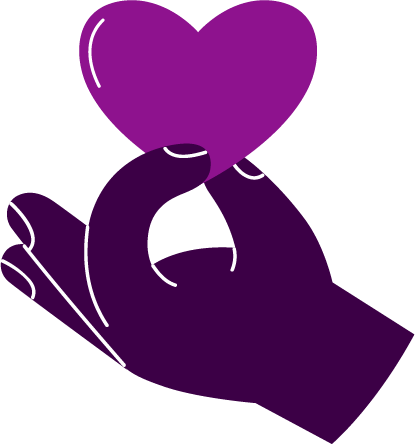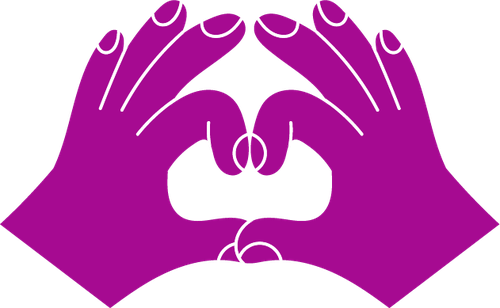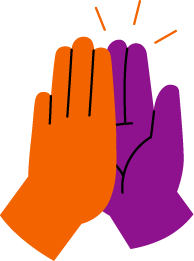Do I have an eating disorder?
Do I have an eating disorder?
If you are wondering whether you have an eating disorder, this may bring up lots of questions, thoughts, and feelings.
It may also be that other people are telling you that they are concerned about you or think you have an eating disorder, but you don’t agree. This can be difficult and cause conflict with those around you. Our Helpline team are here to discuss anything you are concerned about or would like to learn more about.
Who can get an eating disorder?
Eating disorders are complex mental illnesses. Anyone, no matter what their age, gender, ethnicity or background, can develop one. Some examples of eating disorders include avoidant/restrictive food intake disorder (ARFID), bulimia, binge eating disorder, and anorexia.
There’s no single cause and people might not have all symptoms for any one eating disorder. Many people are diagnosed with “other specified feeding or eating disorder” (OSFED), which means that their symptoms don’t exactly match what doctors check for to diagnose binge eating disorder, anorexia, or bulimia, but is still very serious
It’s also possible for someone’s symptoms, and therefore their diagnosis, to change over time. For example, someone could have anorexia, but their symptoms could later change to fit with a diagnosis of bulimia.


What do eating disorders look like?
If you haven’t had reason to know much about eating disorders previously, it may be that your understanding of them is based on the way they’re shown in the media. This often portrays a particular type of story in terms of who gets eating disorders, what causes them, and what the symptoms are. For example, you may have most often heard about the experiences of young white women with anorexia, which doesn’t reflect the full spectrum of eating disorders and people who can develop them
Your circumstances, feelings, and symptoms may be very different to what you’ve seen or read about, but that doesn’t mean you can’t have an eating disorder. The way eating disorders present themselves can vary a lot from person to person. Eating disorders can also be difficult to identify because it’s not possible to tell if someone has one just by looking at them. If you think you might be having problems with your eating or feel that difficult feelings or situations are making you change your eating habits or feel differently about food, you could have an eating disorder or be developing one.
What can I do next?
We have lots of other information that you may find useful if you think you or someone you know has an eating disorder and as you start thinking about getting help:
- Learn more about types of eating disorders and symptoms.
- If you’re not sure how to tell someone your concerns, you can read about how to tell someone here.
- If it’s someone else that you’re worried about, you can read about ways you might raise the issue with them.
- Call our Helpline to talk about your concerns, It's free to call from a landline or mobile.


How can I get treatment?
The best next step is to book a GP appointment. Recovery is possible at any time, but it’s important to try and seek help as early as you can, as this can help in recovery. The earlier you can get treatment, the better your chances of recovery. We have put together an information leaflet for people to take with them when they go for an initial appointment, with sections for people with eating disorders or concerned they have one, those supporting them, and the GP. The aim of the leaflet is to get you a referral to a specialist, who can assess your personal needs and develop a plan for your treatment.
Realising that you or someone you know might have an eating disorder can be very frightening, but remember that full recovery is absolutely possible, and Beat is always here to provide support.
Call our Helpline
Our Helpline is here for you.
Support on the Helpline is available by phone, email, webchat through our social media accounts and by letter. Calls to the helpline are free from landlines and mobile phones within the UK.